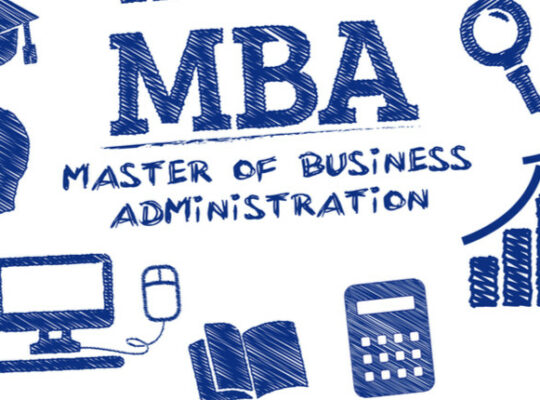Choosing the correct college, course, and career, as well as making the right decision that will propel one’s professional career forward, is a challenging undertaking. When it comes to higher education, there is a lot of uncertainty and pressure. The most pressing question for a student is which field to pursue, which specialization to undertake, and which college to attend. There’s a lot of weight on your shoulders!
Those seeking a master’s degree frequently find themselves in a labyrinth of uncertainty and difficulty in fully utilizing their possibilities and strengths. To clear up any doubt, this article will explain what is what.
Which is better: Business school or an MBA?
Many students have a hazy understanding of what a business school entails. Isn’t it the same as MBA? Well, no it’s not.
Business schools are educational institutions dedicated to the study of business and management. It is essentially a massive institution that offers graduate and post-graduate students with business and management courses.
So, an MBA program is one of the many programs and degrees that a business school offers. They award bachelor’s, master’s, and doctoral degrees in commerce, as well as bachelor’s, master’s, and doctoral degrees in business administration and management.
Those who desire to get an MBA at a B-school will have more options for learning and skill development than those who attend only MBA colleges.
For each field of subjects ranging from entrepreneurship to management and technical studies, B-schools have specialized programs and curriculum.
Some business schools focus on a certain topic of study, doing research and developing solutions for their students.
When compared to students graduating from an MBA/MCA institution or university, B-school graduates have more hands-on experience in their industry and have a better chance of landing a decent job.
How do you choose a business school?
Now that we know what a B-school is and what services they provide, let’s move on to the next step. Let us now turn our attention to the next question: which B-school should you attend? Let’s perform some preliminary study before deciding on or shortlisting business schools.
Follow these four steps to choose the right business school for you:
Step 1: Compass
Choosing a location for your studies. That is, conducting extensive research and understanding of one’s finances before deciding whether to study abroad or find a national B-school or a regional university.
Choose a B-school that is internationally accredited if you wish to pursue a master’s degree overseas. i.e. AACBS, EQUIS, or AMBA. These internationally approved B-Schools will follow a globally recognized curriculum and syllabus, which will undoubtedly lead to a plethora of field opportunities and skill development.
There are also a number of reputable international B-schools in India, such as IIM Calcutta, ISB Hyderabad, and IIM Bangalore. Now, getting into these institutes is challenging due to the high level of competition. As a result, many B-schools have distinct entrance exams such as the CAT, GMAT, and SAT to shortlist students.
Only qualified students with a good GPA get admitted to these prestigious B-schools across the country. These institutes also offer scholarships and on-campus housing to excellent performers. So, if you’re well-prepared for entrance examinations, you should surely target the top schools.
If you want to attend a university-based college, seek colleges that have received AICTE and NAAC certification. These colleges will have a more comprehensive curriculum and will provide excellent possibilities for students in the state or region.
Step 2: Culture
So, what exactly do you want to focus on? Which field do you believe will lead you to your desired target? A student must choose and assess his or her area of interest as well as a long-term objective.
For example, a student interested in advancing his management skills might enroll in a program that provides more hands-on experience in group discussions and activities that aid in connecting and networking with people as well as learning consumer and client behaviors.
B-schools offer specialized approved programs and curriculum in areas like entrepreneurship, marketing, and finance, etc. Rather than traditional lecture sessions, several B-schools employ a study and discussion learning style that brings a variety of ideas to the table for students to learn and experience.
A background check on the institutes through online websites or interactions with alumni or current students can help one understand the culture and learning opportunities that might complement one’s field of interest and help them decide whether or not to opt for that college.
Step 3: Duration
The B-schools provide a wide range of programs. Now, each program may have a different duration and curriculum than the others.
Courses at online business schools are shorter than those at traditional business schools. In India, an MBA degree takes two years to complete, while some overseas universities offer it in as little as 16 months. Finding a curriculum that fits your study plan is crucial.
Step 4: Internships and placement of B-schools
Summer internships are available at many B-schools, which can assist applicants to gain valuable on-the-job experience. Students should also look for skill improvement during their course of study and compare the Bschool’s placement rate with the placement rate in their field of expertise.
Most students are placed in good companies or self-employed, and major brands are continually on the hunt for candidates from these institutes.
Tip:
Do not choose a business course or field because it is popular and you feel obligated to take it. Only when you’ve chosen a course and a specialty that interests you can you build competence, expand your knowledge, and make a successful career choice.
To summarize, B-schools offer a plethora of opportunities that are unrivaled by MBA or management institutions. As every decision has implications, therefore conducting a comprehensive study and developing self-confidence and motivation can help a student achieve his maximum potential.


About the Author: Samiah Fareed
Samiah has a bachelor’s degree in engineering and is currently pursuing MBA. She enjoys writing and creating content for digital platforms in her spare time. She is a determined and ambitious person who wants to follow her passion for writing.
This article has been re-published on Medium




